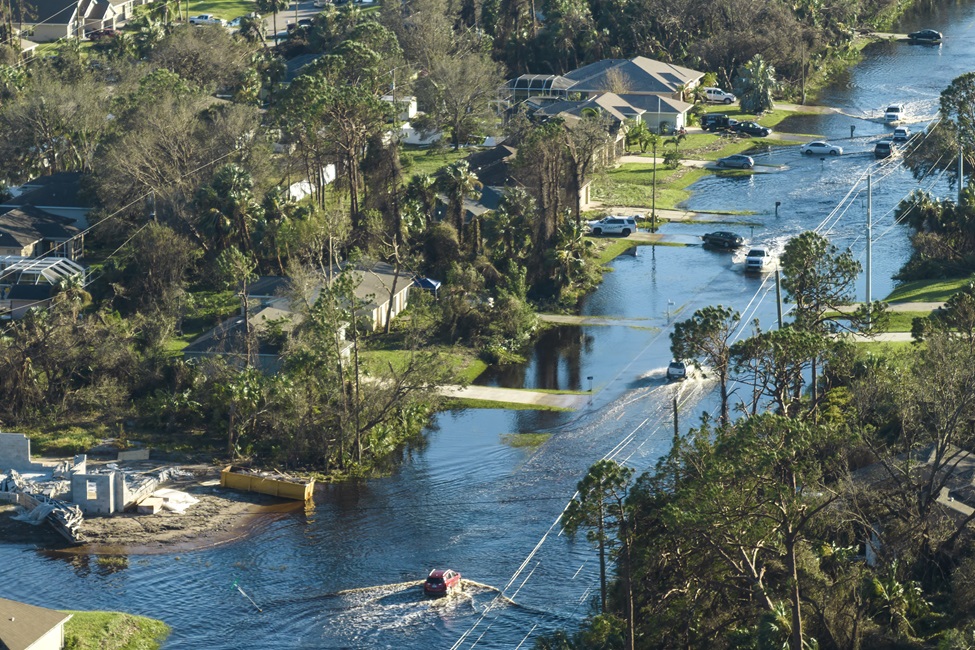90% of Floridians Believe Climate Change is Happening

Floridians support strengthening the state's resilience to the effects of climate change because they are experiencing it.
The latest edition of Florida Atlantic University’s “Florida Climate Resilience Survey,” found that 90% of Floridians believe that climate change is happening. In comparison, a recent Yale University survey showed 72% of all Americans believe climate change is happening. The FAU survey includes questions on beliefs about climate change, experience with extreme weather events and support for climate-related policies.
The Florida Climate Resilience Survey also shows belief in human-caused climate change has surged among Florida Independents while slipping among Republicans in the state since last fall.
But despite these changes, the latest edition of the survey found enduring support among Floridians for increased government action to address the consequences of a warming planet. The survey found 68% of all respondents want state government to do more and 69% want the federal government to do more to address climate change, a finding consistent with previous surveys.
“Floridians support strengthening our resilience to the effects of climate change because they are experiencing it. The urgency to act means debate over causes is largely irrelevant,” said Colin Polsky, Ph.D., founding director of FAU's School of Environmental, Coastal, and Ocean Sustainability (ECOS), a professor in geosciences, and director of the FAU Center for Environmental Studies (CES) within the Charles E. Schmidt College of Science.
Among the 58% of Floridians who believe human activity is the cause of climate change, the survey found changing attitudes based on party affiliations. Among Floridians who report no party affiliation, belief that climate change is caused by human activity increased by 11% since the last survey in September 2023 (to 64% in the latest survey). But belief in human-caused climate change among Florida Republicans declined during that time, dropping to 40% from 45%.
The survey also found noteworthy differences in opinion based on the age of the respondents. Respondents under age 50 were more likely to believe that human activity is the cause of climate change than those 50 and older (66% to 50%) and more likely to want state government to do more to address its impacts (77% to 59%).
“Global warming became a major public issue in 1988. The age 50 cutoff is therefore a good proxy for separating people whose formative years included this issue versus those who did not,” said Polsky.
The latest survey found that 67% of Floridians believe climate change should be taught in schools. More than two-thirds of respondents have supported climate education in classrooms in nine of the 10 surveys conducted since 2019.
Florida Democrats (87%) and independents (68%) expressed the highest level of support for climate education in the latest survey, but even a majority of Republicans expressed this belief (52%).
“This abiding majority support for K-12 teaching climate change confirms the premise that Floridians want more climate change awareness and action regardless of the cause,” said Polsky.
The survey also found falling support for solar power as the primary form of energy production that Florida should be supporting for the future: 51% of all respondents support that statement, a decrease of 4% since last fall.
This decline has been happening since solar energy reached peak support of 62% in September 2022, but the recent drop was most pronounced among Florida Republicans. While support for solar remained consistent among Florida Democrats and independents since the last survey, such support fell 9% among Republican respondents.
Overall, most respondents said that climate change sparked their concern for the well-being of future generations (68%). But less than half of all respondents (48%) said they would be willing to pay $10 a month to strengthen Florida’s infrastructure to weather hazards.
CES has conducted the Florida Climate Resilience Survey since October 2019 and now does so every spring and fall. The latest edition was conducted in English and Spanish from March 18-21. The sample consisted of 1,400 Floridians, ages 18 and older, with a survey margin of error of +/- 2.53 percentage points.
For more information, survey results and full cross-tabulations, visit https://www.ces.fau.edu/ces-bepi/ or contact Colin Polsky, Ph.D., at cpolsky@fau.edu.
-FAU-
Latest News Desk
- FAU's Queen Conch Lab Receives Prestigious International AwardFAU Harbor Branch researchers have received the 2025 Responsible Seafood Innovation Award in Aquaculture from the Global Seafood Alliance for its Queen Conch Lab's pioneering work in sustainable aquaculture.
- After Cancer: Study Explores Caring-Healing Modalities for SurvivorsResearch from FAU's Christine E. Lynn College of Nursing highlights how caring-healing methods like mindfulness can ease distress and build resilience in cancer survivors.
- FAU Researchers 'Zoom' in for an Ultra-Magnified Peek at Shark SkinWhat gives shark skin its toughness and sleek glide? Tiny, tooth-like denticles. Researchers used electron microscopy to reveal how these structures shift with age, sex, and function in bonnethead sharks.
- FAU Receives $1.6M Gift for Student Entrepreneur ScholarshipsFlorida Atlantic University received a $1.6 million gift from long-time Boca Raton resident Bob Schattner, which will be used to continue providing scholarships that he established 15 years ago in perpetuity.
- FAU Lands $3M Federal Grant to Prevent Substance Use in At-risk Youth"Rising Strong" will support more than 3,000 South Florida youth with trauma-informed, evidence-based prevention, empowering vulnerable populations to build resilience and choose substance-free futures.
- FAU Research: Logistics Expansion Slows as Transportation Prices DropThe Logistics Managers' Index had the lowest overall reading since March as the supply chain reacts to economic uncertainty, according to researchers from Florida Atlantic University and four other schools.






